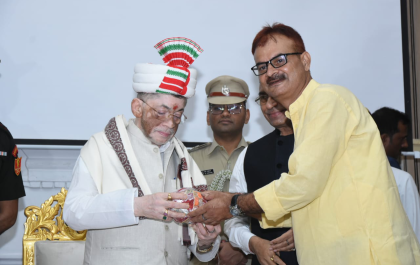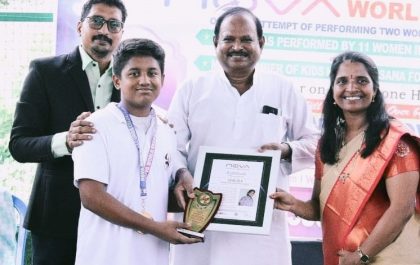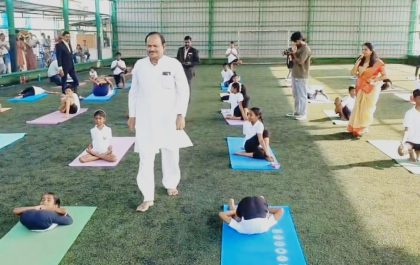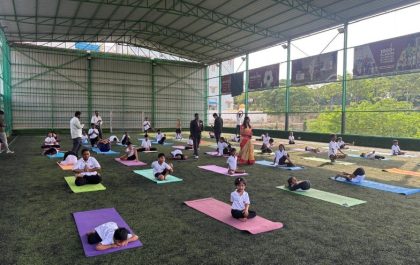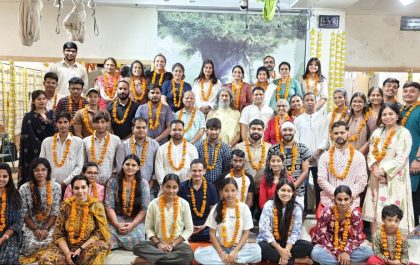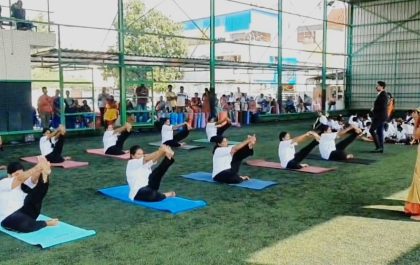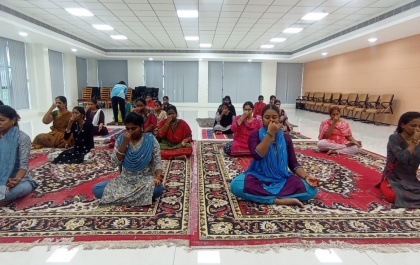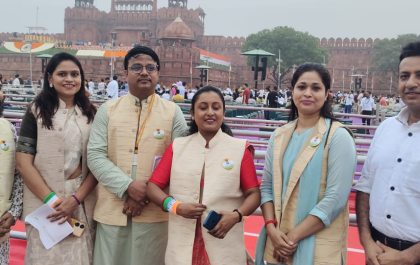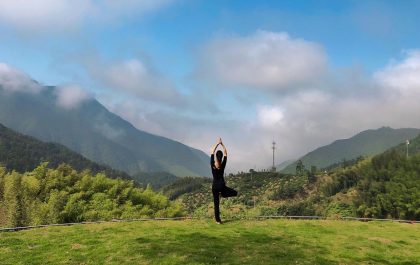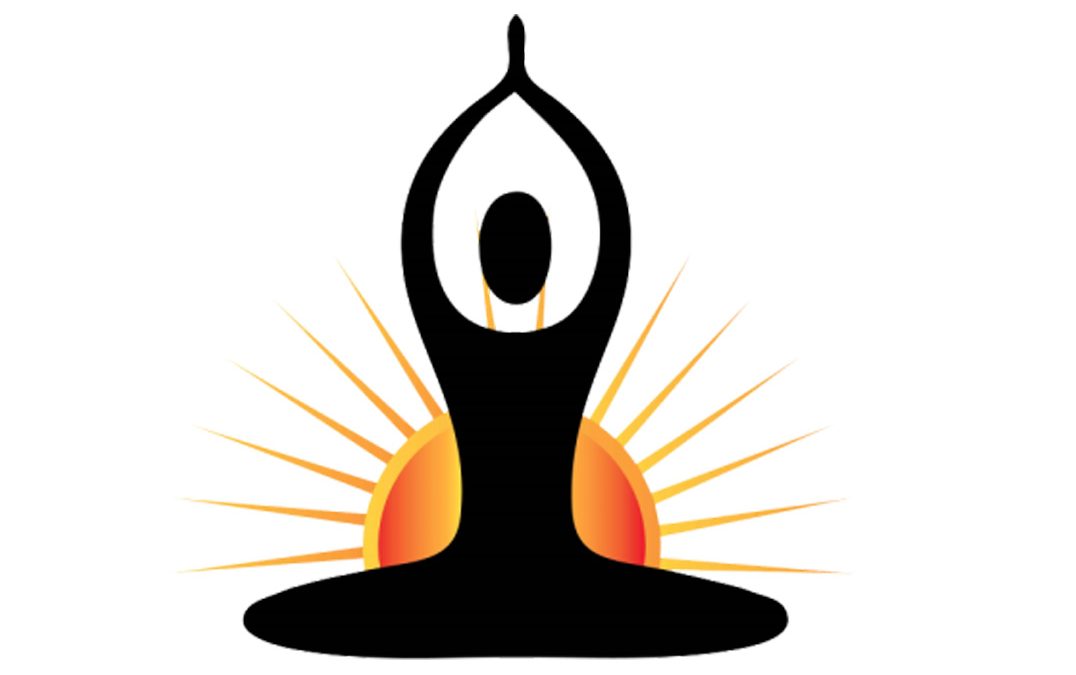Research is extremely important to support different approaches to health care. In the recent past, Yoga has been gaining lot of attention as Yoga Institutes, reseachers, scholars have started offering substantive clinical research evidence. In this issue, Indian Yoga Association brings to you the Research Papers published by our Member Institutes and other Institutes or individuals on the Effects of Shavasana in anxiety, stress, for relaxation and enhancing memory
Kaivalyadhama

Kaivalyadhama
Differential impact of Shavasana and meditation on memory scores in healthy college students: A randomized controlled study
Authors: Ranjeet Singh Bhogal, Ghanshyam Singh Thakur, Sanjay Uddhav Shete
Published in: Yoga Mimamsa 48(1):9
Published on: January 2016
Yogic relaxation techniques endow its practitioners with the relaxation of Citta (i.e., mind, intellect, and ego) and freedom from psycho-physiological fatigue. Objectives: The purpose of the present study was to compare the differential impact of the guided instructions in Shavasana and meditation in supine posture on verbal, spatial, and associate memory scores. Research Design: This was a randomized controlled trial. Method: Randomly selected 45 healthy college students were equally divided into meditation group (n = 15), Shavasana group (n= 15), and control group (n = 15), with age range of 22–30 years. All individuals were assessed for total memory through Wechsler Memory Scale before and after the 30-day intervention of yoga, consisting of two types of relaxation techniques (Shavasana and meditation in supine posture). The sessions were of 30 min each for both the intervention groups for 6 days a week.

Swami Vivekananda Yoga Anusandhana Samsthana (S-VYASA)
Effect of two yoga-based relaxation techniques on memory scores and state anxiety
Author: Pailoor Subramanya and Shirley Telles
Published in: BioPsychoSocial Medicine 2009 3(1):8
Published on: 13 August 2009
A yoga practice involving cycles of yoga postures and supine rest (called cyclic meditation) was previously shown to improve performance in attention tasks more than relaxation in the corpse posture (shavasana). This was ascribed to reduced anxiety, though this was not assessed.
In fifty-seven male volunteers (group average age ± S.D., 26.6 ± 4.5 years) the immediate effect of two yoga relaxation techniques was studied on memory and state anxiety. All participants were assessed before and after (i) Cyclic meditation (CM) practiced for 22:30 minutes on one day and (ii) an equal duration of Supine rest (SR) or the corpse posture (shavasana), on another day.
Sections of the Wechsler memory scale (WMS) were used to assess; (i) attention and concentration (digit span forward and backward), and (ii) associate learning. State anxiety was assessed using Spielberger’s State-Trait Anxiety Inventory (STAI).
There was a significant improvement in the scores of all sections of the WMS studied after both CM and SR, but, the magnitude of change was more after CM compared to after SR. The state anxiety scores decreased after both CM and SR, with a greater magnitude of decrease after CM. There was no correlation between percentage change in memory scores and state anxiety for either session.
A cyclical combination of yoga postures and supine rest in CM improved memory scores immediately after the practice and decreased state anxiety more than rest in a classical yoga relaxation posture (shavasana).

Centre for Yoga Therapy Education and Research (CYTER)
Effects of overnight sleep deprivation on autonomic function and perceived stress in young health professionals and their reversal through yogic relaxation (Shavasana).
Author: Raghul S, Vasanthan S, Ananda Balayogi Bhavanani, Jaiganesh Krishnan, Madanmohan T
Published In: National Journal of Physiology Pharmacy and Pharmacology 8(9):1
Published On: January 2018
Extensive research has been done to demystify the effects of sleep deprivation on cognitive functions, memory, and reasoning ability. However, there is a lacuna in regard to the effects on autonomic function and perceived stress as well as its modulation through yogic relaxation. Healthcare professionals often work at night, and the effect of acute overnight sleep deprivation on their performance is crucial. Aims and Objectives: The present study was undertaken to study the effects of overnight sleep deprivation on autonomic function and perceived stress in health-care professionals and to determine its modulation through yogic relaxation (Shavasana). Materials and Methods: A total of 35 healthcare professionals, aged between 20 and 25 years, were recruited from emergency services wing (casualty) of MGMC and RI, Puducherry, and taught yogic relaxation. Heart rate (HR), blood pressure (BP), and HR variability (HRV) were recorded and Cohen’s perceived stress scale (PSS) administered before the commencement of day duty. Parameters were again recorded after overnight sleep deprivation due to night shift work and then after they practiced yogic relaxation (Shavasana). As data passed normality testing, Student’s paired t-test was used to compare the changes after sleep deprivation and then after yogic relaxation. Results: Overnight sleep deprivation resulted in statistically significant (P < 0.05) increases in systolic BP (SBP), low frequency (LF), LF/high frequency (HF), diastolic BP (DBP), PSS, and mean HR. This was coupled with significant decreases in mean RR, SDNN, pNN50, HF, and RMSSD. Following yogic relaxation, these changes were reversed, and significant decreases were witnessed in LF, LF/ HF, SBP, mean HR, DBP, and PSS with significant increases in mean RR, pNN50, HF, RMSSD, and SDNN. Conclusion: The findings of our study reiterate the negative effects of sleep deprivation on cardiac autonomic status. Such deleterious effects may be partially reversed by practicing yogic relaxation (Shavasana). Such conscious relaxation may be able to help correct imbalance of autonomic nervous system by enhancing parasympathetic tone and reducing sympathetic over activity.
Shavasana—Relaxation technique to combat stress
Author: Geetanjali Sharma, K.K.Mahajan, Luv Sharma
Published in: Journal of Bodywork and Movement Therapies, Volume 11, Issue 2, Pages 173-180
Published on: April 2007
The present study was undertaken on 60 young adults of both sexes to determine if Shavasana could be an effective tool to combat stress. Stress was experimentally induced by cold pressor test (CPT) and effect was observed by recording its effect on cardio-respiratory parameters viz. systolic blood pressure, diastolic blood pressure, pulse rate, respiratory rate and rate pressure product. The study was divided into three setups. In the first setup, all parameters were recorded in basal state i.e. in supine position and after CPT. Second setup CPT was done after performing Shavasana for 10 min and for the third setup, effects of CPT were observed after subjects had undergone Shavasana training for 10 min daily for 4 weeks. All basal parameters progressively statistically significantly decreased after performing Shavasana for 10 min and after its continuous practice for 4 weeks. Cold pressor induced stress showed statistically significant rise in all parameters in all the three setups but this rise was blunted and a progressively lower percentage increase was observed. It suggests that a person practicing Shavasana can successfully reduce the physiological effects of stress.
Disclaimer: The Research Papers have been selected by the Yogavani Content Team from a google search for ‘Shavasana’.
